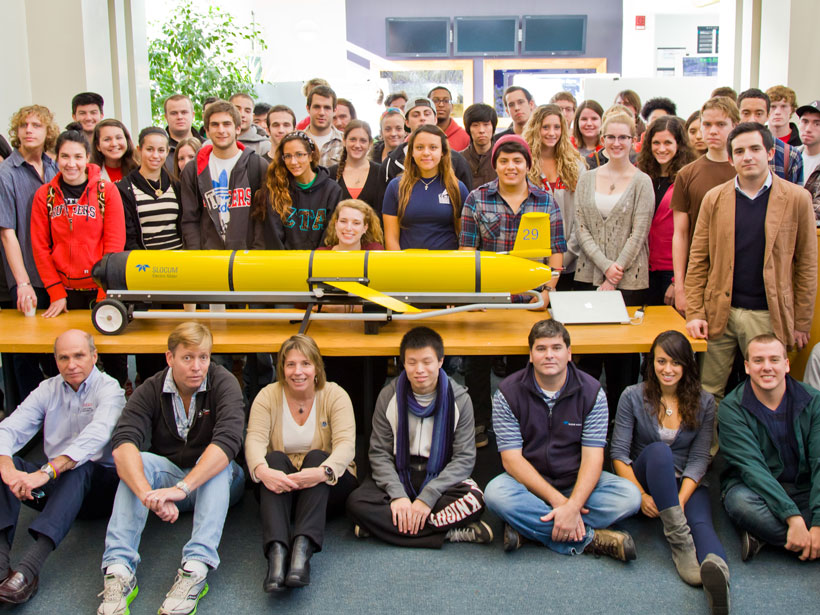Zdenka Willis always loved the ocean. Every summer, her family trekked from Indiana to South Carolina, where Willis and her sisters combed the beaches for sharks’ teeth, watched the dolphins swim, and wondered what other marvels were out there, just out of view.
When it came time for college, Willis returned to the Eastern Seaboard to study marine science at the University of South Carolina. Encouraged by her father, who had emigrated from Czechoslovakia and joined the Army Reserves after settling in the United States, Willis applied for a Reserve Officers’ Training Corps scholarship. When she graduated in 1981, she became a U.S. Navy oceanographer.
Willis’s first assignment at sea was aboard a 122-meter hydrographic research vessel, where she led a small boat crew mapping the ocean floor off the coast of Haiti. In those days, Navy ships were still using paper charts, but as technology evolved and Willis’s responsibilities expanded, she helped the Navy transition to digital charts and adopt new weapons systems. Willis loved both the challenges and the opportunities presented by a military career. “You’re always being challenged with new ideas and new tasks, and that makes it exciting,” she said. “You certainly don’t get bored in your job.”

Willis retired from the Navy as a captain in 2006 and went to work for NOAA. There, she became the founding director of the agency’s U.S. Integrated Ocean Observing System office, which aims to connect data, tools, and people all along the nation’s coasts. It was her broadest mission yet. Willis had spent her Navy career thinking about how what she was learning about the ocean might affect naval operations and warfare, whereas “at NOAA, I had to care about everything from microbes to whales and everything in between,” she said.
Willis currently serves as president of the Marine Technology Society, an international organization that “brings together businesses, institutions, professionals, academics, and students who are ocean engineers, technologists, policymakers, and educators” in the advancement and application of marine technologies.
Willis is working to make both the organization and the field of marine science in general more equitable and inclusive, adding programs and positions to support young professionals and promote women leaders. She is committed to providing young professionals the same kind of opportunities and support she received in the Navy, where shipmates take care of each other. “The Navy gives you responsibility, expects you to perform, but is a very supporting environment.”
To learn more about the Marine Technology Society and its programs, Willis encourages people to follow the society on Twitter (@MTSociety) or through its website (mtsociety.org/).
This profile is part of a special series in our September 2021 issue on science careers.
—Kate Wheeling, Science Writer
Citation:
Wheeling, K. (2021), Zdenka Willis: Sailing into a high-tech future, Eos, 102, https://doi.org/10.1029/2021EO162241. Published on 24 August 2021.
Text © 2021. The authors. CC BY-NC-ND 3.0
Except where otherwise noted, images are subject to copyright. Any reuse without express permission from the copyright owner is prohibited.


